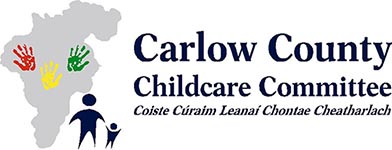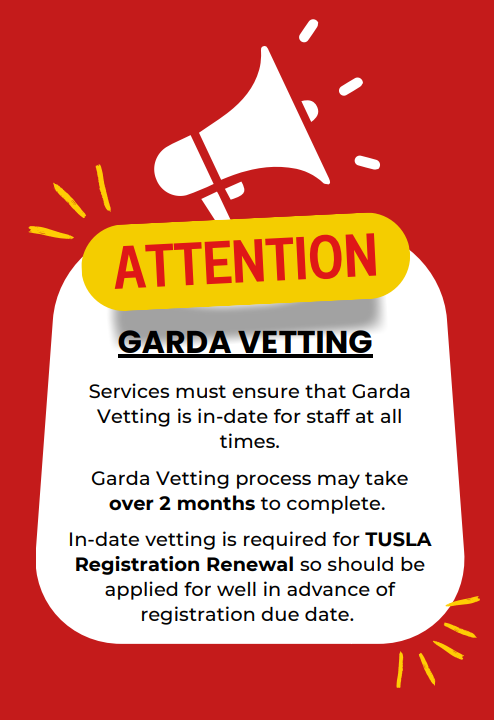Number of early learning and childcare services located on school premises at all-time high
From: Department of Children, Disability and Equality
- Published on: 11 August 2025
- Last updated on: 11 August 2025
Minister for Children, Disability and Equality, Norma Foley has welcomed the growth in the proportion of early learning and childcare services located on school premises which has reached an all-time high.
In the 2021/22 programme year, 15.9% of early learning and childcare services were located on school premises, this increased to 16.8% in the 2022/23 programme year and 19.2% in the 2023/24 programme year.
The proportion of early learning and childcare services located on school premises has further increased to 22.5% in the current 2024/25 programme year.
This equates to 1,084 services of the 4,816 early learning and childcare services in contract with the Department for the 2024/25 programme year.
It means that nearly one in four of early learning and childcare services are now located on school premises.
This is reflective of an overall expansion of the early learning and childcare sector, with enrolments of children in services increasing by 19% from an estimated 197,285 in 2022 to 234,597 last year.
Minister Foley today welcomed the data which shows that supply of early learning and childcare is increasing, both in schools and in the wider community.
“I particularly welcome the growth in the number of services operating in school buildings. This supports availability of places in a convenient location for parents.
I would like to thank all the schools who have responded so positively to the updated Procedures on the use of School Buildings and School Sports Facilities outside of School Hours which guarantee that any income from after-school use of their facilities will not affect their State grants, capitation fees or any other form of departmental funding.”
The Programme for Government sets out the ambition to work with schools to host before and after-school childcare in school buildings. There is also a commitment to develop State-led early learning and childcare facilities in tandem with the school building programme.
I look forward to working with colleagues across Government to advance these commitments, which will improve choice and convenience for parents, and maximise the potential of school sites.”
There has been a notable rise in the use of school buildings for school-age childcare-only services. Most of this is understood to be for breakfast clubs and after-school clubs.
Last year, in her role as Minister for Education, Minister Foley published Procedures on the use of School Buildings and School Sports Facilities outside of School Hours to encourage more schools to open up their facilities for early learning and childcare and other community purposes when not required by the school.
There are now 565 school-age childcare-only services located on school premises which represents almost two thirds (65%) of the 869 school-age childcare only services in operation.
Around 261 new school-age childcare services were registered with Tusla in 2024, leading to a net increase of 225 new school-age childcare services in one year alone. At the end of last year, there were a total of 2,724 school age services on the Tusla register of early years services which are located both on school premises and in the wider community.
The rise in the availability of school-aged childcare services, particularly after-school clubs, has led to a 56 per cent increase in children enrolled in these services over the past two years. The number of children enrolled is up from an estimated 50,847 children in 2022 to 79,183 last year.
The potential for development of State-led facilities in tandem with the school building programme will be considered as part of the wider capital plans to develop State-led services. The Programme for Government commits for the first time to provide capital investment to build or purchase state-owned early learning and childcare facilities, to create additional capacity in areas where unmet need exists.
State ownership of facilities is a very substantial and significant development and offers the potential for much greater scope to influence the nature and volume of provision available and to ensure better alignment with estimated demand.
The overall approach to ensure there are appropriate levels of high-quality early learning and childcare places for families will be advanced in the Action Plan to build an affordable, high-quality, accessible early childhood education and care system that Government is committed to publishing.
Notes
Data on the number of children enrolled in early learning and childcare services is compiled each year by Pobal as part of the Early Years Sector Profile.
The Annual Early Years Sector Profile survey is the primary data source on the early learning and childcare sector.
It is developed and administered by Pobal on behalf of the Department of Children, Disability and Equality (DCDE). All services who are contracted to deliver at least one DCDE funded programme/scheme (that is, ECCE, NCS, CCSP) are invited to take part in the survey.
The survey response rate in recent years ranged from 82 to 85 per cent of providers, so it can be used to accurately estimate what percentage of services are located on school premises. It is more difficult to get definitive figures on the total number of individual services, given that a small percentage of services that did not complete the survey. However, new administrative data for the current 2024/2025 programme year shows that the 22.5 per cent of early learning and childcare services equates to 1,084 services out of 4,816 services in contract with the Department for the 2024/25 programme year.
The survey, which has been running for 21 years, plays a central role in informing policy development, assessing the impact of policy change and provides a comprehensive national analysis of early learning and childcare services throughout Ireland.
Further information can be found on the Early Learning and Childcare data website. The Capacity section of the website provides information on enrolments and vacancies on services that responded to the survey as well as estimated figures for the overall sector.



